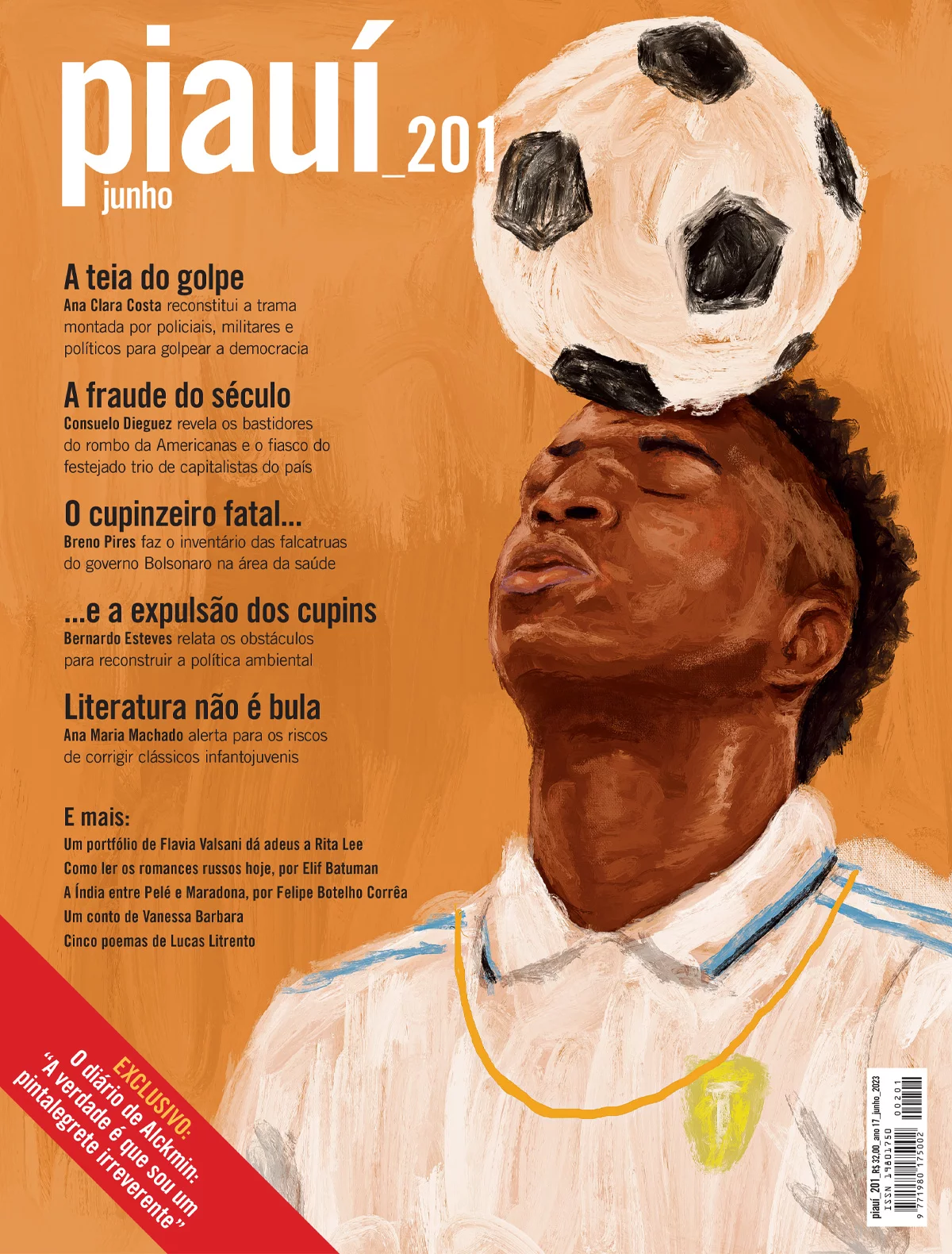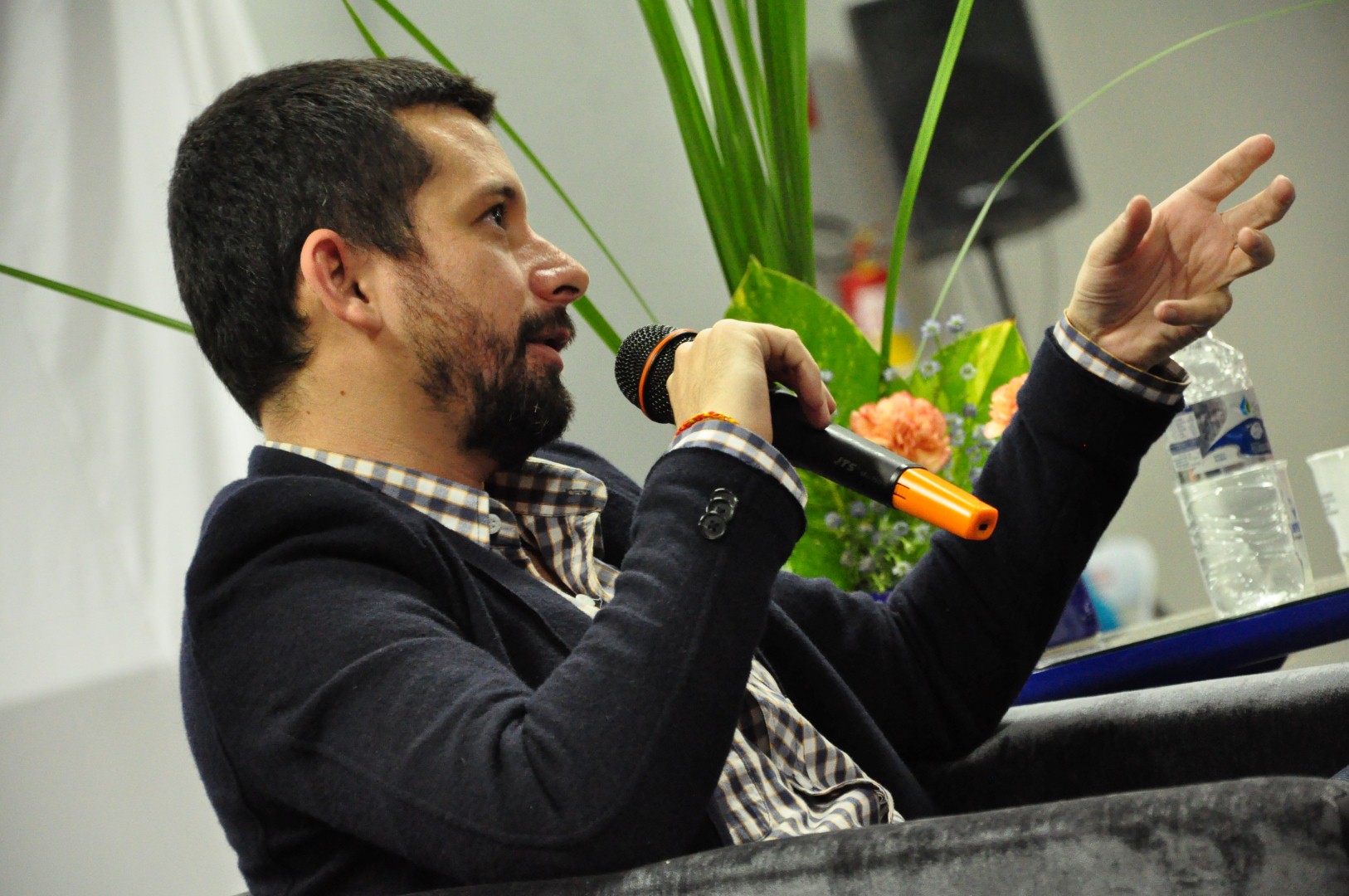Stories taken down, magazines picked up from newsstands, documentaries banned from being seen — in recent months, the press itself has been the subject of news stories in Brazil several times. This happened after the country's courts ordered the immediate censorship of stories in response to lawsuits by parties who felt defamed.
The trend of muzzling the press through the courts has been going on for years in Brazil and is intensifying, a warning sign for defenders of freedom of expression. The tactic, classified as "judicial harassment," is, in the words of the president of the Brazilian Association of Investigative Journalism (Abraji for its acronym in Portuguese), Katia Brembatti, "the new frontier" of intimidation of Brazilian journalists.
"Every citizen has the right to access justice to appeal when they feel harmed, but something different from that is the so-called bad faith litigation, the use of the judiciary as an instrument of intimidation, to prevent someone from revealing inconvenient facts," Brembatti told LatAm Journalism Review (LJR). "In recent years we have had an escalation of attacks on the press, such as digital violence on social media, or physical violence in the streets, and the murders of Dom Philips and Givanildo [Oliveira] in 2022. And now the judicial harassment is becoming more and more intense."
Recent cases of censorship include several lawsuits involving the current president of the Chamber of Deputies in Brasília, Arthur Lira (PP-AL party). In mid-July, the conservative congressman sued the websites Agência Pública and Congresso em Foco and the YouTube channel ICL Notícias after they published independent stories featuring his ex-wife Julyenne Lins Rocha, in which she accused him of domestic and sexual violence.
In the lawsuit, Lira argued that the accusations were considered untrue and defamatory by the Supreme Federal Court (STF, for its acronym in Portuguese), asking, in addition to censorship, for damages of up to R $300,000 (US $63,000). In addition to these lawsuits, Lira also sued ICL Notícias for publishing videos that contained allegations of corruption.
The requests for immediate removal of the content from Agência Pública and ICL Notícias were denied, but a court in Brasília ordered the removal of the interview with Congresso em Foco. All cases are still pending in court, without a sentence.
The fact-checking agency Aos Fatos, which was already censored in 2021 at the request of the far-right magazine Oeste, was also banned from disseminating information due to a recent court decision. In June, the Rio Grande do Sul Court of Justice (TJ-RS) upheld censorship of a story published in April 2020 that denounced a coordinated disinformation network of which Jornal de Cidade online website was part of.
Another case of censorship was against piauí magazine. In its June issue, the publication carried a story on how Jair Bolsonaro's government had weakened the Mais Médicos [More doctors] program and replaced it with an agency deemed full of irregularities.The story quoted the names of a couple, L.W. and D.O.M., who were part of the denounced entity.

The cover of Piauí magazine 201, from June, 2023, which was removed from newsstands
Claiming that the article reported an "untrue fact," the couple appealed to the courts and asked for the removal of the article from piauí's website and the recall of the magazine's print edition from circulation. Judge Hilmar Castelo Branco Raposo Filho, of the Federal District, ordered the publication to remove the names mentioned. In practice, this meant removing piauí magazines from newsstands.
Another recent case involved a series of stories and a documentary by the website The Intercept Brasil on the so-called Parental Alienation Law. The publication revealed the names of judges, magistrates, prosecutors, psychologists, and social workers who, in applying the law, sometimes free those accused of rape or domestic violence, often taking children away from women and handing them over to those they have denounced.
The court decision was supposedly intended to protect the privacy of the children, who were not identified. After the website appealed, a court ruled in mid-July that the stories could go back live, but the documentary remains censored.
According to Silvio Henrique Barbosa, a professor of Social Communication at the Federal University of Piauí and co-author of the book "Imprensa e censura [Press and censorship]," these recent episodes constitute cases of judicial censorship and prior censorship, in which information and denunciations are censored immediately, before being considered defamatory by courts.
"The judge who makes such a decision, who says 'collect this, this information cannot be disseminated,' is still inspired by prior censorship. He does not want the information to reach anyone, so he orders the content to be suppressed," Barbosa told LJR.
According to Barbosa, the cases conflict with Brazil's Federal Constitution and with Supreme Court decisions. The legal grounds of the cases are the so-called personal rights, which include the protection of intimacy, private life, honor and image, and are provided for in the Brazilian Constitution.
The same document, however, also provides for the right to free access to information. When the two principles conflict, the right to information must prevail, and this has been the understanding of the highest Brazilian court, the researcher said.
"When there is a confrontation between these two constitutional rights, the Supreme Federal Court (STF) understands that the greater right is the right of society to be informed, which has a greater weight and will always be guaranteed in relation to personal rights," Barbosa said. "In all its decisions, the STF orders the judges' injunctions to be canceled, and says that there can be no prior censorship. That the remediation, when necessary, must be subsequent [to the trial]."
It takes years for the Supreme Court to rule on lawsuits. In 2019, the Court dismissed a request for prior censorship by the newspaper Estado de São Paulo involving Fernando Sarney, son of former president José Sarney after 3,327 days, or eight years. For smaller news outlets that don't have the resources to appeal to higher courts, the lawsuits can mean high legal costs and that their complaints will have no effect.
"These lawsuits represent a very big legal cost, and also a big mental stress for reporters, who are left blaming themselves or wondering if they could have done something differently," Abraji's Brembatti said.
The impoverishment of the public sphere even affects public expression, according to Fernando Oliveira Paulino, a professor at the University of Brasilia and president of the Latin American Association of Communication Researchers (ALAIC, for its acronym in Portuguese).
"The increase in lawsuits and court rulings can mean placing greater care about what is broadcast, and it can also mean restrictions on what is published, including journalistic material as well as comments submitted by the public," Oliveira Paulino told LJR.
Although it generally rules in favor of freedom of information, the Supreme Court itself has made decisions in favor of censorship to protect itself from denunciations. In 2019, the court ordered the removal of stories denouncing its then-president, Dias Toffoli, published by Crusoé magazine and the Antagonista website. Last year, Rubens Valente, one of Brazil's most awarded journalists, was ordered to pay R $310,000 (US $60,000) for allegations involving Justice Gilmar Mendes.
There is no systematic monitoring of judicial censorship cases in Brazil, so it is not possible to know how much they have been increasing, if at all, or if they are only more visible now. According to Brembatti, Abraji, in partnership with Taís Gasparian, from the Tornavoz Institute, has started trying to map the number of cases. There is also an initiative by the Federal Public Prosecutor's Office of Rio de Janeiro in this regard.
Another initiative that Abraji has been developing, this time in partnership with a professor at the University of São Paulo (USP), is to hold working meetings in search of a definition of the concept of "judicial harassment," which today does not exist in Brazilian legal doctrine.
According to Brembatti, one of the reasons for so many lawsuits is the ease, including in terms of costs, with which courts can be used to sue journalists in Brazil. "Accessing justice in the United States is very expensive, and that is one of the reasons why suing a journalist in the United States is not a recurring practice. In Brazil, for example, we have special courts being used for this in a wrong way," he said.
Another reason, according to Oliveira Paulino, is the increasing presence of the Judiciary in Brazilian politics and daily life. "In recent years, there has been an increase in the structure, attributions and performance of the Judiciary and, consequently, the judicialization of everyday situations. On the one hand, access to justice has grown and contributed to a greater claim for rights. On the other hand, the Judiciary has been central to political processes, becoming an important instrument in the struggle for power, with strategic use in the pursuit of hegemony," Oliveira Paulino said.

Writer João Paulo Cuenca, sued 144 times by evangelical pastors of the Universal Church of the Kingdom of God (Photo: Rafael Andrade)
In addition, the professor observes that the internet enables organizational strategies to use justice as a tool against communicators, "making it difficult to defend against and also constraining the practice of professionals." That was the case, for example, of writer João Paulo Cuenca, who suffered from 144 different lawsuits in various regions of Brazil promoted by pastors of the evangelical Universal Church of the Kingdom of God.
Protecting journalists, according to the experts consulted, requires changes in legislation. Brembatti quoted the so-called Anti-SLAPP Law of the European Union (EU), an initiative to protect journalists and human rights defenders in the EU bloc, as an example to be followed.
The last Press Law in Brazil, written in 1967 during the military dictatorship, provided for prior censorship, and was repealed in 2009. Professor Barbosa believes that a new legal framework can offer protection to communicators.
"Press regulation would be good for limiting the ability of courts to hand down punishments and to define this clearly. It would be possible, for example, to stipulate how misinformation should be corrected, with a right of reply and compensation," he said.
To further complicate the situation, there is also the problem of so-called fake news, including many situations where disinformation is deliberate. In these cases, Barbosa understands that, yes, the courts can act; but those are exceptions.
"We have to weigh each situation. I think that the Electoral Court can, yes, order the removal of false information, but in these cases, this is necessary to preserve democracy. In other situations, such as these recent ones, democracy is not under threat."
Banner and featured images are by Mariordo (Mario Roberto Durán Ortiz), CC BY-SA 4.0, via Wikimedia Commons.